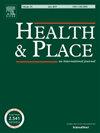在贫困、物质使用、性工作和性别的交叉点导航水、环境卫生和个人卫生(WaSH):对加拿大温哥华洗手间拖车项目的定性分析
IF 4.1
2区 医学
Q1 PUBLIC, ENVIRONMENTAL & OCCUPATIONAL HEALTH
引用次数: 0
摘要
尽管高收入国家在获得水、环境卫生和个人卫生设施方面存在巨大差距,但很少有研究探讨高收入国家边缘化和犯罪社区的水、环境卫生和个人卫生经验。我们的研究评估了加拿大温哥华的厕所拖车计划(WTP)是如何影响无住房/住房不稳定人群、性工作者和物质使用者的健康公平体验的,该计划是在2019冠状病毒病大流行期间市政对公共厕所大规模关闭的应对措施。具体而言,我们研究了WTP干预措施如何影响获得WaSH服务、过量预防、基于性别的暴力(GBV)风险以及与卫生保健和社会服务的联系。我们分析了47个半结构化访谈(2023-2024年),受访者包括WTP用户、同行员工和网站运营商,并利用健康框架的结构性决定因素和交叉女权主义视角,描绘了结构性不平等如何交叉和复合,从而塑造了WaSH基础设施的使用和参与。我们的研究结果表明,无家可归或居住不稳定的妇女、性工作者和物质使用者在试图开展常规的WaSH活动时面临着更高的性别安全问题,她们在身体暴力和性暴力方面具有独特的性别脆弱性。我们发现,WTP干预措施有可能减少健康和毒品相关脆弱性,包括性别暴力风险,主要是通过将低障碍性别敏感的反暴力和减少伤害支持与WaSH基础设施相结合。这项研究的结果强调了在高收入国家的其他城市环境中扩大和评估类似的讲卫生运动干预措施的潜在好处,这是一种改善边缘化和犯罪人群总体安全、健康和福祉的务实手段。本文章由计算机程序翻译,如有差异,请以英文原文为准。
Navigating water, sanitation and hygiene (WaSH) access at the intersections of poverty, substance use, sex work and gender: A qualitative analysis of Vancouver, Canada's washroom trailer program
Although substantial disparities in access to Water, Sanitation and Hygiene (WaSH) facilities persist in high-income countries (HICs), few studies have explored the WaSH experiences of marginalized and criminalized communities in HICs. Our study assessed how the Washroom Trailer Program (WTP), a municipal response to large-scale closures of public washrooms during the COVID-19 pandemic, shaped experiences of health (in)equity among unhoused/precariously housed people, sex workers and people who use substances in Vancouver, Canada. Specifically, we examined how WTP interventions shaped access to WaSH services, overdose prevention, risks of gender-based violence (GBV), and connections to health care and social services. We analyzed 47 semi-structured interviews (2023–2024) with WTP users, peer staff and site operators and drew on a structural determinants of health framework and an intersectional feminist lens to delineate how structural inequities intersect and compound to shape access to and engagement with WaSH infrastructure. Our results indicate that unhoused/precariously housed women, sex workers and people who use substances face heightened gender safety concerns in their attempts to carry out regular WaSH activities, with unique gendered vulnerabilities to physical and sexual violence. We found that WTP interventions have the potential to reduce health and drug-related vulnerabilities, including risks of GBV, primarily through the integration of low-barrier gender-responsive anti-violence and harm-reduction supports alongside WaSH infrastructure. The findings of this study highlight the potential benefits of scaling and evaluating similar WaSH interventions in other urban settings in HICs as a pragmatic means of improving overall safety, health and well-being among marginalized and criminalized populations.
求助全文
通过发布文献求助,成功后即可免费获取论文全文。
去求助
来源期刊

Health & Place
PUBLIC, ENVIRONMENTAL & OCCUPATIONAL HEALTH-
CiteScore
7.70
自引率
6.20%
发文量
176
审稿时长
29 days
期刊介绍:
he journal is an interdisciplinary journal dedicated to the study of all aspects of health and health care in which place or location matters.
 求助内容:
求助内容: 应助结果提醒方式:
应助结果提醒方式:


